If you haven't yet, follow us on X (Twitter) or Mastodon to know when we post new articles, and join our Reddit or Subscribe to us on YouTube to check out our content and interact with our awesome community. Thank you for supporting us!
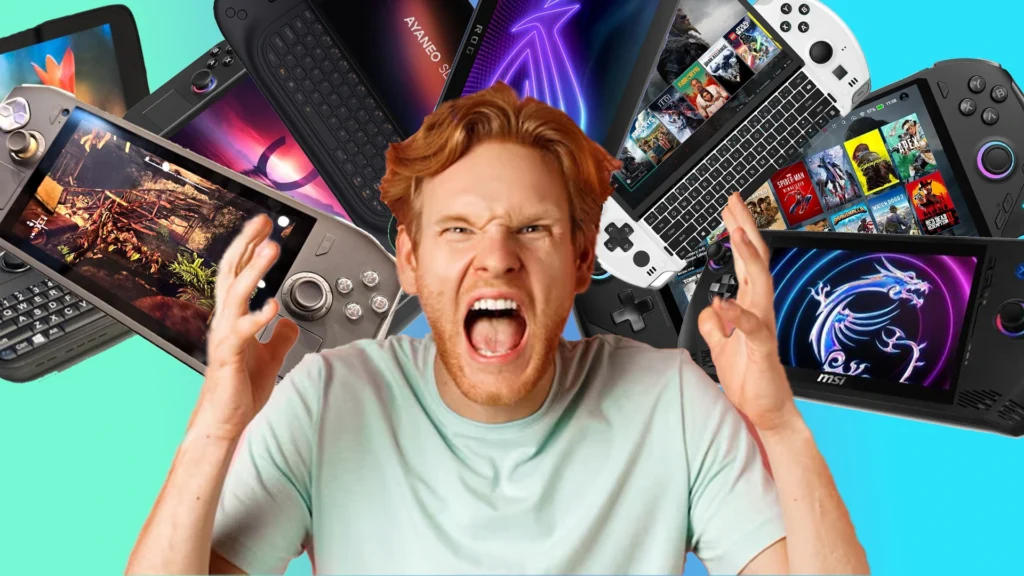
When the Steam Deck was released two years ago, it opened the floodgates into handheld PC gaming. It's still pretty amazing to think about in some ways. I could have never imagined there being a way to play my PC games portably and with solid, decent performance. The Deck performed so well and shook things up so much that the entire handheld PC market was brought into a more commercial light instead of the niche it used to be. A year after the Steam Deck was released, ASUS released the Ally, Lenovo launched the Legion Go, and MSI released the Claw, and at first, this was exciting to see. With Computex showing even more devices and rumors popping through, I am starting to feel fatigued.
Some Quick Background
For some background, handheld PCs are relatively new, but Valve didn't make the first ones. We saw handheld PCs from companies like AYANEO, GPD, and ONE-NETBOOK, years before the Deck. Hell, the first GPD handheld, the GPD Win, was released in 2016, 5 years before the Deck was even announced. These devices were able to play games, but with some lacking specs, higher prices, and them being lesser-known Chinese brands, it didn't take off. So, when Valve came bursting in with a cheap, well-made handheld capable of playing the newest games with a custom OS for lightweight operating to make the most out of the battery, it easily took off. It opened up the market to people who had no idea it existed.
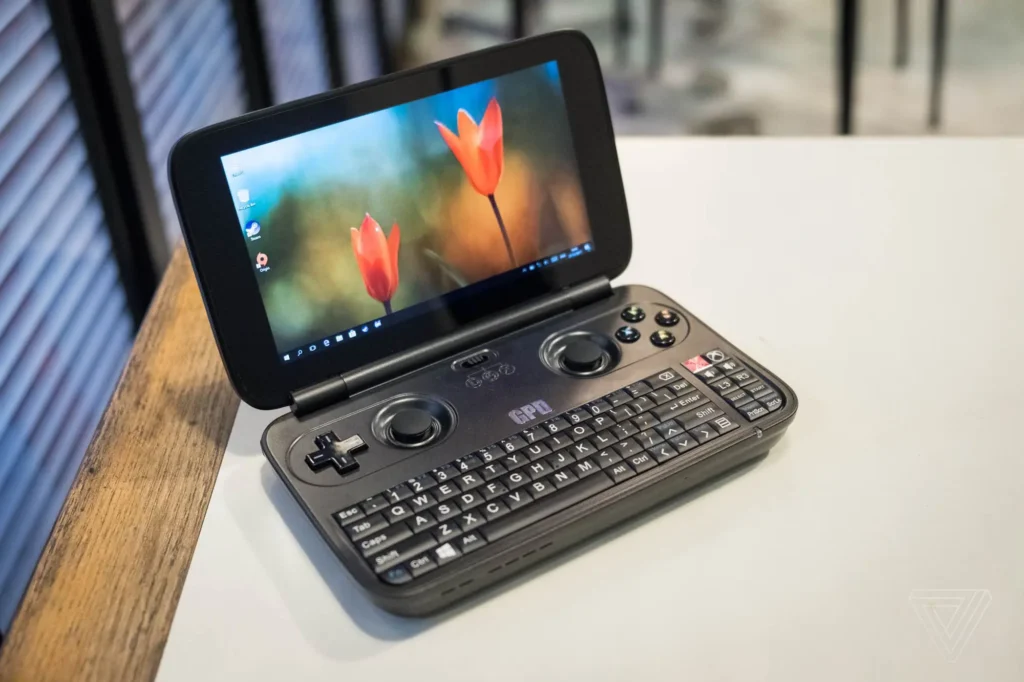
Now, we have a fantastic new market with so much excitement and possibility surrounding it. Utilizing our PC library in a portable console-like device is amazing, and as someone who has over 4,000 games on Steam and regularly takes part in sales and great bundle deals that are PC exclusive, it's hard not to love a device like this. It only made sense that, after the Deck blew the market wide open, other companies would get involved; I just hoped that it wouldn't become similar to the Desktop PC or the Laptop PC market: tons of options that all do relatively the same thing. For primary PC users, it isn't as bad since we are used to looking up specs, doing deeper dives, and making sure we get a bang for our buck. But for new PC users coming from consoles, this could be a breaking point, which could either see them choose the wrong option for them or just turn them off of the idea completely, and it seems like that's where we are heading.
Handhelds Galore: Computex and Rumors
So, you might be thinking now: How many handhelds are there? Well, let's look first at the new confirmed handhelds coming. Computex, a computer expo held in Taiwan, is one of the largest trade shows that showcases new technology and hardware related to computers. This includes computer parts like Intel and AMD CPUs, Nvidia GPUs, and many bigger worldwide brands like Acer and ASUS. This year was no different and had tons of new awesome tech to show off, including new handhelds.
For the already established handheld PC manufacturers, ASUS had teased the new ROG Ally X over the last month, and they first had people trying it out at Computex, while MSI showed off their new MSI Claw 8 AI+ (weird name) 3 months after the release of the first Claw device. ZOTAC also debuted their first handheld called the ZOTAC Zone, which has some interesting specs (and an OLED screen). We also have some smaller companies trying to get into the market with the Adata XPG Nia and the Antec Core HS, which is made in partnership with AYANEO.
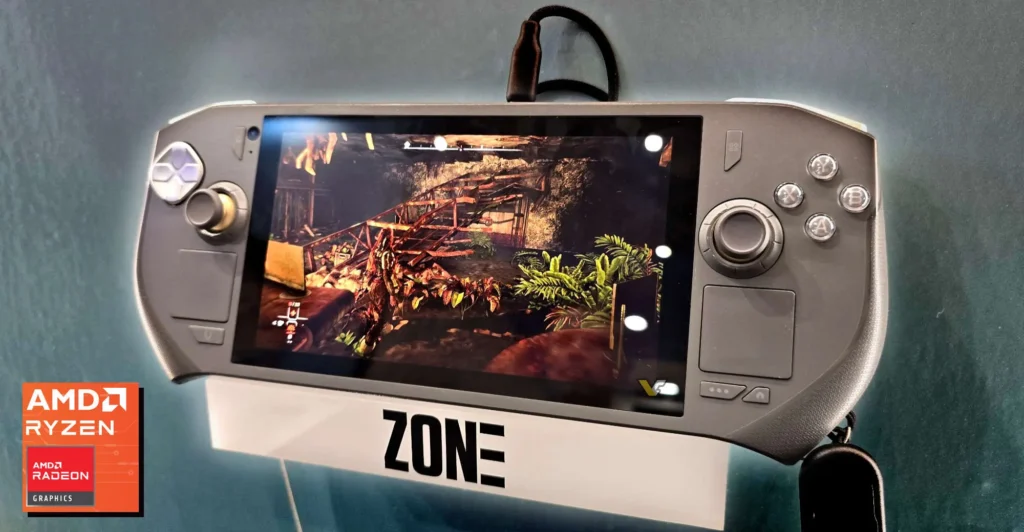
Then, we have the rumored handhelds. This includes Lenovo's Legion Go Lite, a refresh of the Legion Go with some "refinements" and downgrades to make it more affordable. Then we have Xbox and PlayStation. Xbox has been rumored to be working on a handheld, and I would be surprised if we didn't see the efforts of that anytime soon, while PlayStation/Sony has started getting rumors that would suggest a handheld coming due to patents.
All in all that is 8 different handhelds, all shown off or rumored to be coming soon. This joins the roster of currently released devices like the Ally, Legion Go, Steam Deck (LCD/OLED), Claw, and the plethora of devices from AYANEO, ONE-NETBOOK, and GPD.
Now, competition is fantastic for any market. This is what pushes companies to innovate and make consumer-friendly decisions that will benefit the market in the long run. And to some degree, that is the case here. But there is one problem which I think makes this worse overall: Each of these devices, except the Steam Deck, essentially performs exactly the same.
Performance vs Competition
One of the biggest things when it comes to gaming devices, especially PCs, is whether it's future-proofed. We want to make sure we will be able to play newer games that are going to be released in the future, and when the hardware will need to be replaced or upgraded. In handhelds, which can't be as easily upgraded as PCs (and are more expensive than home consoles like the PS5 and Xbox Series X), how games will perform on it is even more important. So, of all the handhelds I mentioned, can you guess which performs the best out of all of them? The answer is none. Except for the Steam Deck, they all perform around the same.
Almost all of the devices mentioned use almost the exact same APU internally. The APU is a CPU/GPU combination that is minimized and put into a single chip. All of the announced devices use either an AMD 7840U or 8840U APU (which are essentially the same but with some AI improvements in the 8840U) or the AMD Z1 or Z1 Extreme (which is a reskin of the 7840U APU mentioned above). The only difference is the MSI Claw 8 AI+ is using Intel's new Lunar Lake line of chips. MSI touts that performance will be better, but if their last handheld's performance was any indicator, it wouldn't be that great. It will look better on paper, but not in a real-world situation.
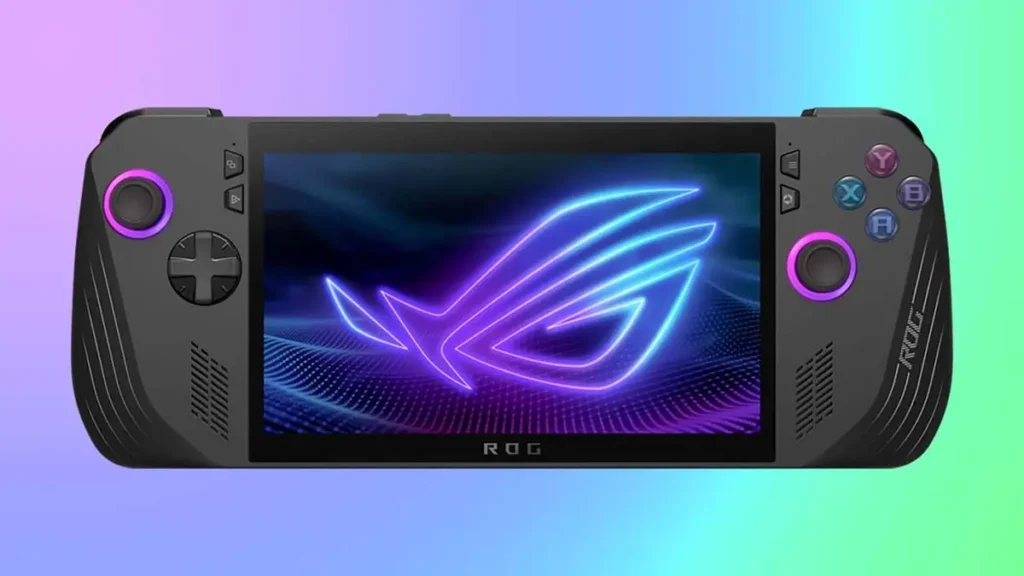
Also, I still can't believe a new MSI Claw handheld was announced just 3 months after the last one. It almost completely invalidates the original model and makes me question why it was even sold in the first place.
Now, one could look at this and say it is great for competition, and to some degree it is, but I feel this is starting to get to confusing and aggravating territory. Each of the devices theoretically will give you the same experience but with some minor changes here and there. OLED screens, AI enhancements, an 80Wh battery, Thunderbolt ports, and a sliding screen are just some of the differences, and none of them will directly affect the performance of your games. They are all there to possibly enhance your experience overall, but for someone who just wants a handheld PC that they can treat more like a console, it's a major turn-off.
It is starting to feel like AYANEO's 7840U/8840U lineup, where they released 6 handhelds last year.
Imagine if this trend continues. Let's say we have 10 different handhelds that all perform similarly and are priced in the same area. They all use the 7840U/8840U or Z1/Z1 Extreme chips. Then, AMD brings out the new generation. We are going to then see upgrades for each of these devices, giving us 10 or so devices with the new chips. We could see variations of devices like "Lite" or "Premium" models that give more RAM or bigger battery, and soon, we will see 20 or so handhelds that all do the same thing with minimal improvements that make it harder for someone who just wants to play games to pull the trigger.
So Which Should You Get?
This is a tough one, so I will give two recommendations. My first one will be pretty obvious, but my second does have some thought into it.
My first recommendation is the Steam Deck. I know we are SteamDeckHQ, but there is a reason. The Deck not only has a fantastic low price point (starting at $400) for all the features you are getting but both SteamOS and Valve's consistent updating and improvements on the Client and operating system give me confidence in the future support for the device. SteamOS allows us to make the most of our battery life thanks to it being a lot more lightweight than Windows, and new features and updates are constantly being implemented to make the experience as great as it can be. We also have wonderful community support and a custom APU that pairs perfectly with SteamOS to perform a lot better than expected. The OLED version amplifies this with the best handheld screen you can get (OLED with HDR) and merges it with great improvements like WiFi 6E support, much better cooling, a bigger battery, and more.
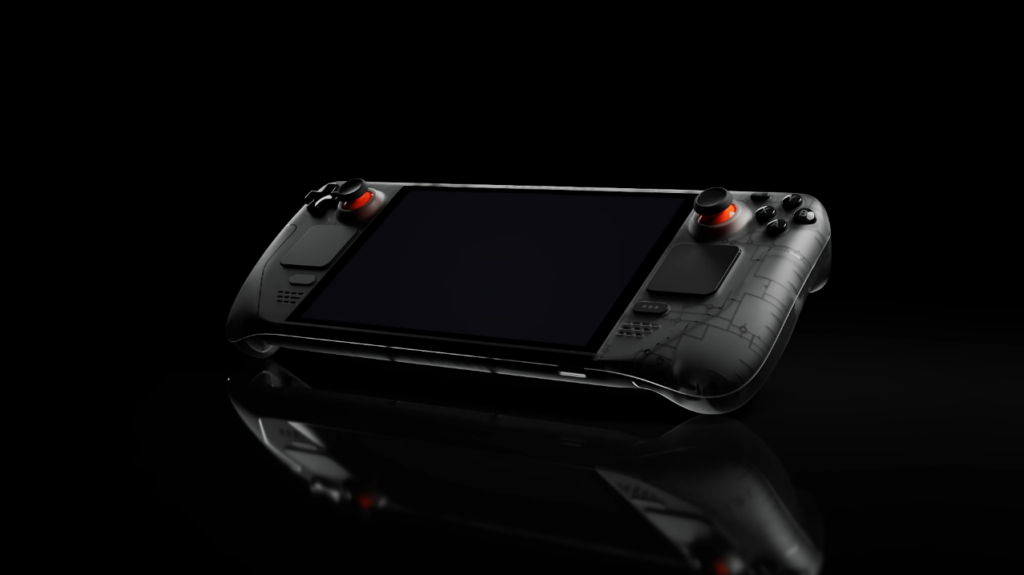
But if you really want a more powerful Windows handheld that allows you to download and play Game Pass titles, then we have some options. I have had the pleasure of trying out all of the currently released handheld PCs, and nothing has beaten the Legion Go for me. The bigger screen, the detachable controllers, FPS mode, and Lenovo's transparency are all big selling points for me. ROG Ally is a close second, but I can't in good conscience recommend it due to my own issues with the device (it isn't comfy) and I don't trust ASUS as a company. I would also recommend checking out the AYANEO KUN, which is just as big as the Legion Go and has a 75Wh battery, as I have also enjoyed my time with this.
The handheld PC market isn't completely overwhelming or too saturated just yet, but these are the signs that it's getting there, and I am starting to feel the fatigue. Just hearing about all these new devices and knowing the improvements aren't where it will help performance, makes me a little sad. Getting a device that could finally play Dragon's Dogma 2 or Returnal would be amazing, but knowing none of these will be able to handle it in a stable fashion due to already knowing the chips makes me less interested in them overall. Thinking about it from the point of view of an outsider with no PC knowledge, this would get too confusing, and I would give up trying to find a handheld or just default to the Steam Deck.
What do you think though? Do you feel the market is getting too big with similar options? What would you like to see in a next generation handheld? Let us know in the comments!
If you enjoyed this article, check out the rest of the content on SteamDeckHQ! We have a wide variety of game reviews and news that will help your gaming experience. Whether you're looking for news, tips and tutorials, game settings and reviews, or just want to stay up-to-date on the latest trends, we've got you covered!




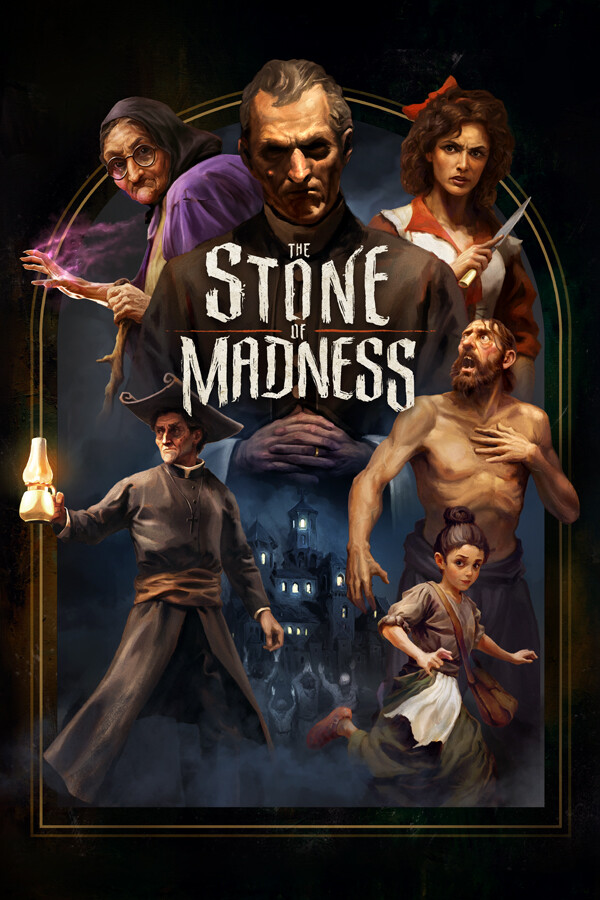

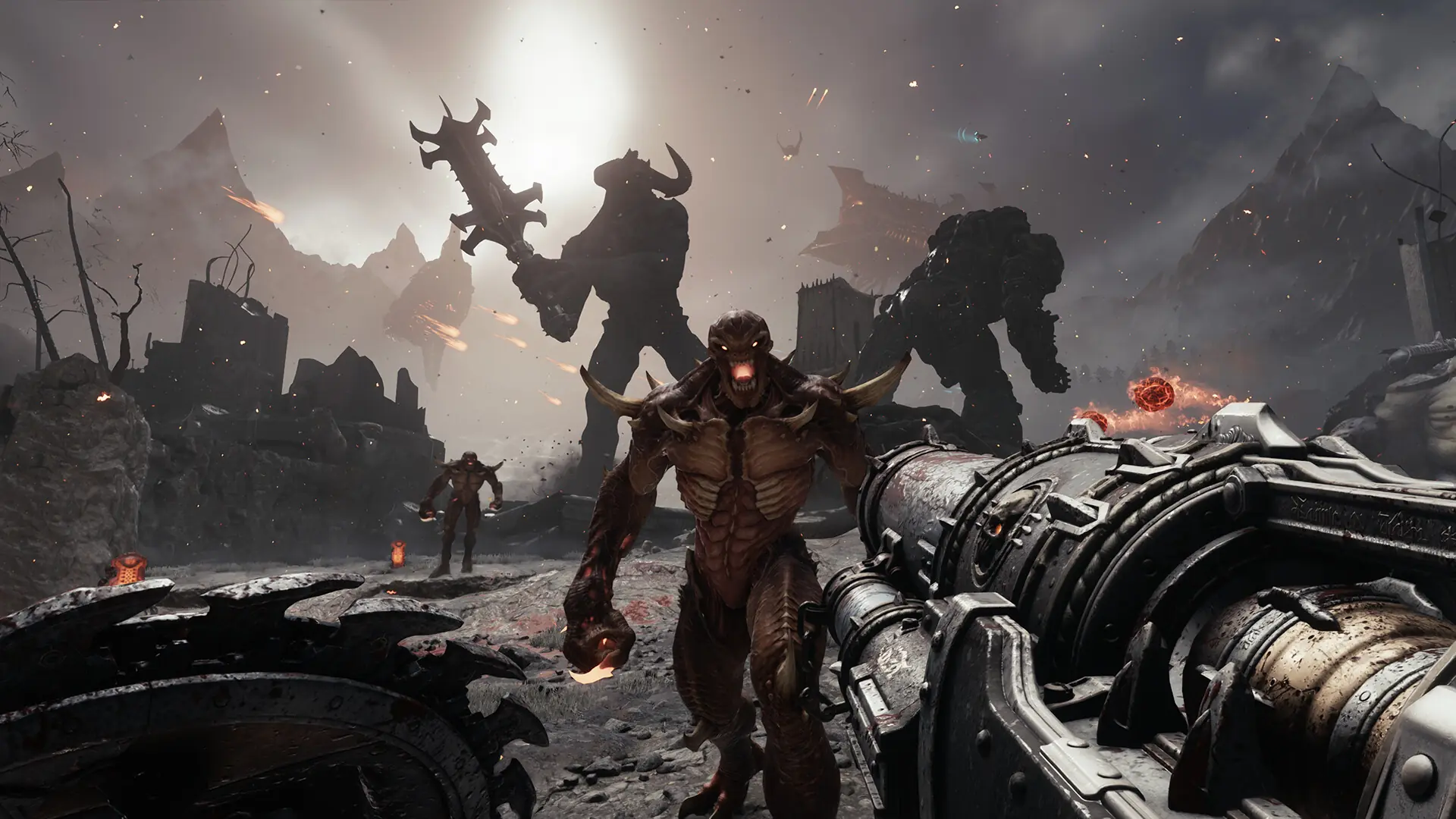
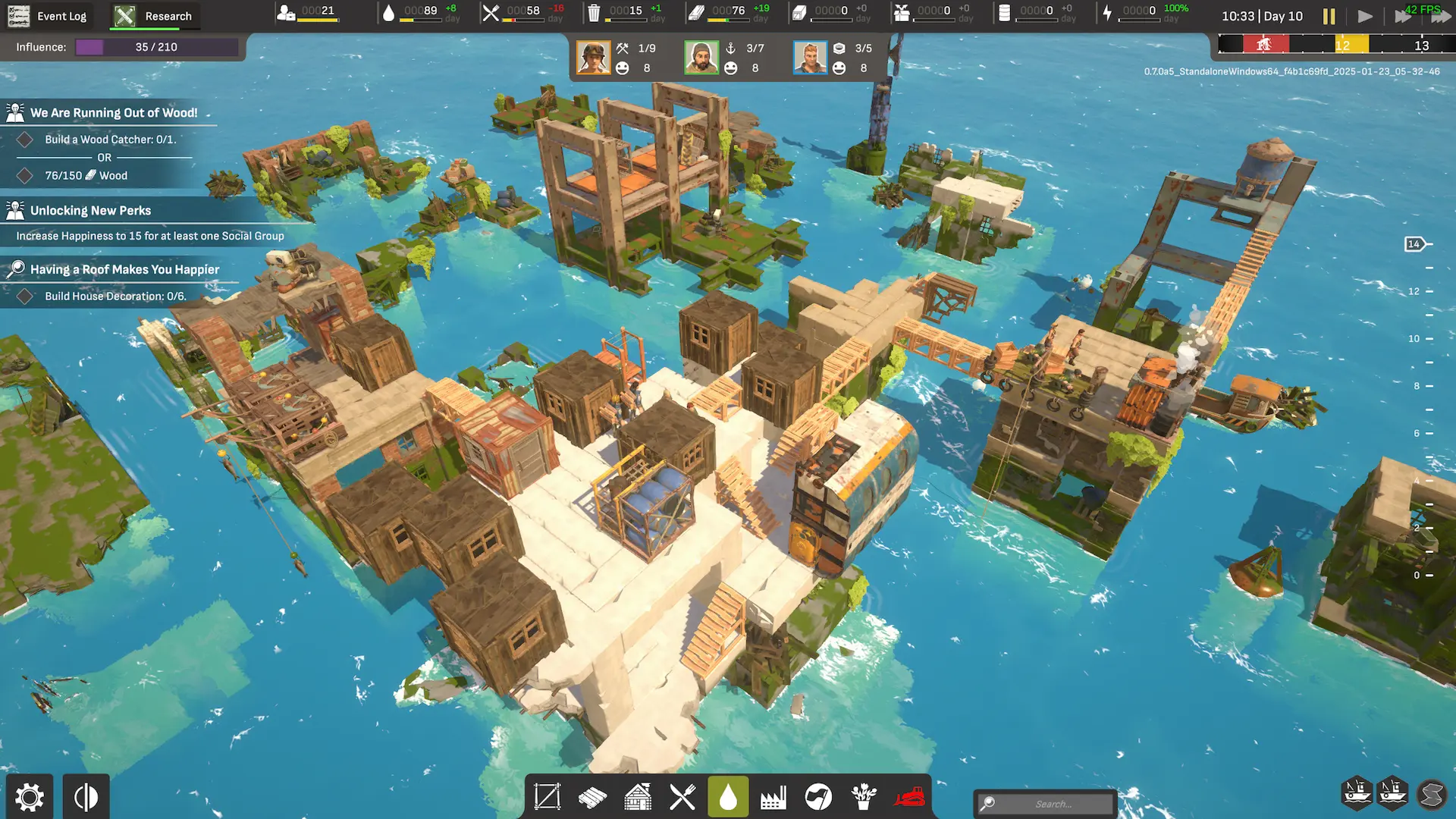

Not sure about Returnal, but it seems Dragon's Dogma 2 got an update not too long ago (in April) that basically doubled performance on the Deck. Still in the 20's but playable for anyone who owned a PS3 or older console from what I've seen.
Fatigue was already here by the time the Steam Deck launched. With how much a SD can not do, hopefully it gets replaced by all these other devices. Valve can then notice how mediocre Linux is and how it holds back the device. SD had a bad screen. Now has a low res OLED but still is behind on specs so much it hurts. Linux isn't helping. SD just added to the heaps of handheld gaming systems out there, with a crap screen and Linux bottleneck no less.
so, are you complaining about having a lot of options to choose, to have competition?
False options, he is saying they all have the same chipset, and are not different from one another in meaningful ways.
Good article.
I don't care about any of the other PC handhelds beside the SD. Because they are exactly this: PCs. Same thing I can buy at any hardware store - just smaller.
The SD is so much more. It is a PC with all the endless possibilities attached to it and at the same time it's like a console with great support from the manufacturer. Valve really cares about this platform. They constantly try to make it better.
The other manufacturers don't give a toss about their handhelds. That's ok, because in the end, hardware is all they have to sell. They don't sell software, they don't run a huge gaming platform etc. Valve does and in my opinion it shows. It shows so much, that I couldn't care less about the slight hardware advantages other PC handhelds have to offer. None of those makes up for the SD experience offered by Valve.
I just want a handheld that's around the size of either the ps vita or the switch lite
The ayn Odin Max was that. Awesome device but they messed up with the launch.
Great writeup Noah! As a 2 months owner of OLED, I began to understand why it stands strong against competition. While SD doesn't have blazingly fast specs on the paper, it compensates for power efficiency. Add that with a meticulously tailored OS, drivers, and internals then you'll have a device that could punch above its weight, reminiscent of Nintendo Switch.
It also introduced me to the world of Linux, and at the same time shattered my misconception about the OS being finnicky and not "gaming friendly". Valve deserves all the credit for implementing Proton compatibility layer to make a great number of Windows native games playable. So far I haven't experienced any issues with my games, as they ran without crashes and has stable frametime graphs.
If Valve decides to wait for a substantial generational leap for the APU for Steam Deck 2, it'll feel a lot more meaningful. And I'll be eagerly looking forward to that day while enjoying my OLED 🙂